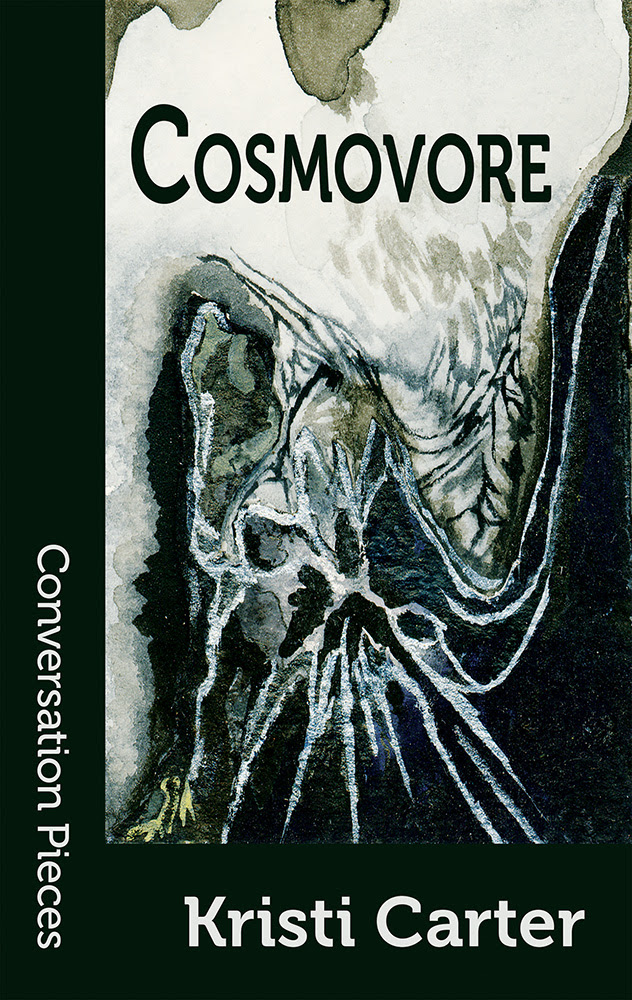2021 Pleasures
by Kristi Carter
I know I'm not alone when I say 2021 wasn't as much of an improvement on the previous year as we'd all hoped. Still living in the surreal confines of a pandemic era in a very red state in the Midwest is no easy task for anyone. That said, it's good to be invited to dwell on the positive from this last year.
Because I'm employed as an adjunct, much of my reading and viewing is concurrent with what I assign students. This year we enjoyed analyzing the social implications and rhetorical choices of the incredibly entertaining Wild Wild Country documentary on Netflix. The series follows a community, perhaps cult, of people in Oregon during the 1980s and the way they clash with the sleepy town of conservatives nearby. Some of my students joked about taking a field trip to the now repurposed site of the commune or dressing up as sannyasins for Halloween. In a mandated English course, it was a pretty impressive level of engagement.

We also read Kiley Reid's Such a Fun Age, a novel that focuses on the shortsightedness of white allies whose investment is more rooted in their own white fragility than genuine investment. Though the novel is set in 2015, the events and implications feel effervescently current with the events of the last two years.
Aside from teaching, my partner and I made time to watch the new Netflix series Post Mortem: No One Dies in Skarnes. This is a speculative series set in current day Norway revolving around a woman, Live, and her family who owns their small town's funeral home. It's hard to get into this without too many spoilers, but what I will say is the writing never dwells too much on terminology and categorization, but more on how the characters' lives have been impacted by the supernatural. Exchanging rigid rules about what makes someone a certain kind of monster for family lore was refreshing, to say the least; also, its dark humor is well-landed in every episode.
The most disturbing film I watched this year was Things Heard & Seen (starring Amanda Seyfried), based on the novel All Things Cease to Appear by Elizabeth Brundage. There are supernatural elements in this film, but as it progresses we come to understand that like any good ghost story, it's the living who are the real villains. Perhaps because so much of my life has been in academia, the events following the male lead and his narcissistic terrorism hit close to home. I keep thinking about the events and imagery of this film months after finishing it.

In reading, I've been enjoying a lot of nonfiction lately. I'm currently making my way through Nancy Marie Brown's The Real Valkyrie: The Hidden History of Viking Warrior Women in which she interrogates and dissects the sexist codification of viking lore to prove the presence of female warriors was more commonplace and respected than most of us understand in our mainstream perception of vikings.
I also loved Undress me in the Temple of Heaven by Susan Jane Gilman. This memoir revolves around two recent college grads who visit China shortly after the cold war cessation on travel is lifted. The memoir investigates American privilege and nationalism, but also the way that the two young women relate to one another under high levels of stress in the face of the unknown. Gilman's writing is sensitive without being overly expository, which can be hard to find in nonfiction.
We're big Kelly Link fans in our house and this summer I was able to finish her collection Pretty Monsters. Like most of her work, there's a balance of magical realism and postmodern deadpan humor that runs through the stories.
The last two works I read this year worth noting were two novels: Lorrie Moore's A Gate at the Stairs and Nightbitch by Rachel Yoder.

Moore's novel follows a young college student who babysits an adopted child of color for a white family. The book is set in 9/11 era America and pokes at some uncomfortable truths about the sidestepping of diversity that attitudes of "tolerance" create. Much like Reid's Such a Fun Age, the author refuses to give us easy answers and the characters are highly developed.
Last but not least, Nightbitch by Yoder has a special place in my heart because it was gifted to me by a friend, but also because, much like my books have been described, it is a difficult text by a woman about being a woman, specifically a mother. Much like Things Heard & Seen, the unnamed protagonist called "the mother" quarrels with the shortsightedness of systems in the humanities, though she's far from being a monster like the father in that film. Instead, the mother has to decide not just how sexism in child-rearing and economics impact her, but eventually, how she can defy them through her art and her life. This is all to say, the novel has an inspiring end, but the reader can't get there without enduring the intense --rightfully so--emotional work of the rest of the novel.
Kristi Carter is the author of Aria Viscera (April Gloaming), Red and Vast (dancing girl press), Daughter Shaman Sings Blood Anthem (Porkbelly Press) and Cosmovore (Aqueduct Press). Her poems have appeared in publications including So to Speak, poemmemoirstory, CALYX, Hawaii Review, and Nimrod. Her work examines the intersection of gender and intergenerational trauma in 20th Century poetics. With James L. Brunton she edited Transnarratives: Scholarly and Creative Works on Transgender Experience, published in 2021 by Canadian Scholars Press.


No comments:
Post a Comment